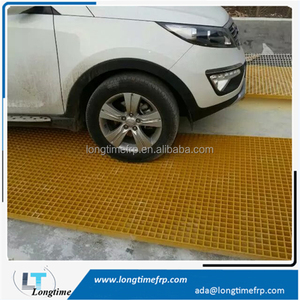Introduction to Fibre Grating
Fibre grating is a modern solution in infrastructure and industrial settings, designed to offer strength, durability, and safety. This innovative product, primarily made from composite materials, serves various sectors including construction, transportation, and manufacturing. Its unique properties make it an essential component for applications requiring load-bearing capabilities while ensuring a slip-resistant surface.
Types of Fibre Grating
Fibre grating comes in several types, each tailored to meet specific industrial demands. Understanding these different types can help businesses select the most suitable option for their needs:
- Fiberglass Reinforced Plastic (FRP) Grating: Known for its excellent corrosion resistance, ideal for chemical processing environments.
- Pultruded Grating: Offers high strength and is used for heavy-load applications due to its solid structure.
- Molded Grating: Features a textured surface that provides superior slip resistance, making it perfect for walkways and staircases.
- Custom Grating: Tailored options are available for unique project specifications, catering to distinctive loading, size, and environmental requirements.
Applications of Fibre Grating
Fibre grating is versatile and widely applicable across various industries, capitalizing on its robust nature and adaptability. The following are common applications:
- Walkways and Platforms: Provides safe, anti-slip surfaces in commercial and industrial settings.
- Marine Structures: Ideal for docks and piers due to its resistance to moisture and saltwater damage.
- Wastewater Treatment: Used in environments where corrosion-resistant materials are essential for longevity.
- Oil and Gas Industry: Effective in offshore plants and refineries where exposure to harsh chemicals is prevalent.
Features and Advantages of Fibre Grating
The remarkable features of fibre grating distinguish it from traditional materials, offering numerous advantages for various applications:
- Durability: Provides a long lifespan even in extreme conditions, reducing the need for frequent replacements.
- Lightweight Design: Easier to handle and install compared to heavy steel alternatives, leading to reduced labor costs.
- Corrosion Resistance: Prevents degradation when exposed to harsh chemicals, making it ideal for industrial use.
- Customizable Sizes and Colors: Meets unique aesthetic and functional needs, enhancing integration into existing designs.
- Safety Features: Slip-resistant surfaces ensure maximum safety for personnel, minimizing accident risks in workplaces.






























































































































































































